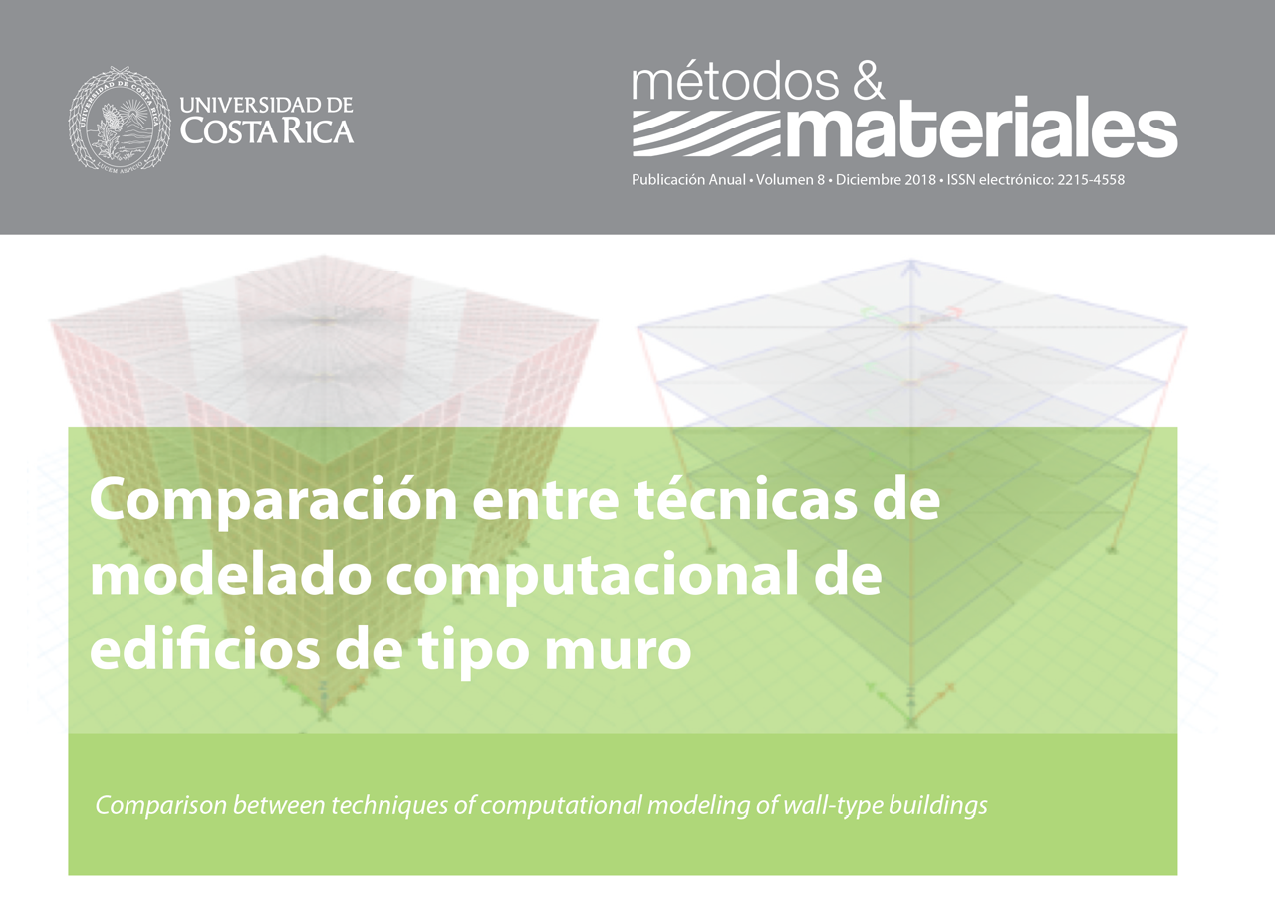Abstract
This paper compares the application of different computational modeling techniques of wall-type buildings; specifically, the following modeling methodologies were studied:
- Modeling through frame type elements with rectangular cross-section
- Modeling through frame type elements with irregular cross-section
- Modeling through shell type elements
In order to apply each modeling techniques to different buildings, the structural analysis software called ETABS was used. In which a spectral dynamic analysis of each one of these models was carried out, with which a results matrix was created that allowed comparing and discussing the different global structural responses that can be obtained for the same building when a linear analysis is carried out using different modeling techniques. From this comparison, it is concluded that in general, the models composed of frame type elements with a rectangular cross-section and the models made with area type elements show similar behaviors, so that wall-type buildings of up to 30 levels could be modeled with both methodologies without significant differences in structural responses (periods, seismic forces at the base of the structure and drifts). On the other hand, models made with frame type elements with irregular cross-section presented significant differences for these same responses.
References
Ammar, A., & Hassan, J. (2011). Shear wall analysis using framework method: comparison with shell element method and column analogy. Engineering and tech journal, 31, 3-13.
Chandrupatla, T., & Belegundu, A. (2011). Introducción al Elemento Finito en Ingeniería. Pennsylvania: Pearson.
Chocano, A. (2003). Análisis estructural por el método matricial. Conceptos y aplicaciones. San José. Proyecto de graduación para optar por el grado de Licenciatura en Ingeniería Civil, Escuela de Ingeniería Civil, Universidad de Costa Rica.
Colegio Federado de Ingenieros y Arquitectos. (Revisión 2014). Código Sísmico de Costa Rica 2010. San José: Editorial Tecnológica de Costa Rica.
Computers and Structures Inc. (2015). CSI Analysis reference manual. California.
Tan, M., & Kubin, J. (2008). Comparison of practical approaches for modelling shearwalls in structural analyses of buildings. 14th World Conference on Earthquake Engineering, (págs. 1-8). Beijing.






